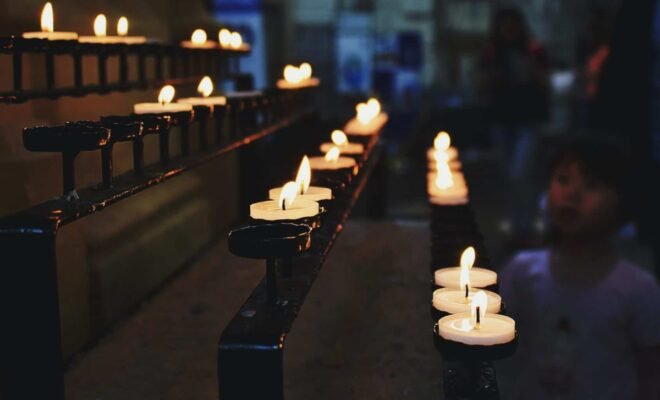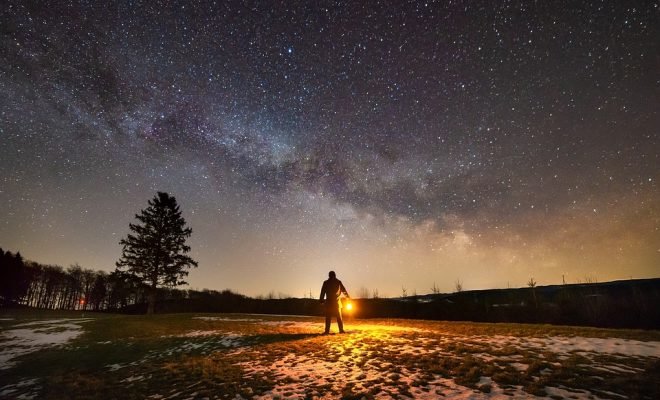How the Argument for Universal Connection Will Save the Meaning of Faith

The world evolved from a single point in time. People, nature, culture, and religion are all connected by a universal thread, woven into the beautiful tapestry that is our world. Somewhere along the timeline, we started building walls instead of bridges. The purpose of faith is to bring us together, but it often drives a wedge instead. People argue for rightness instead of connection. What if the true meaning of faith is centered on the argument of universal connection? Embracing our connection could save us from the destruction of polarized thinking that currently divides us.
An Evolution of Faith
My understanding of faith started an intense evolution when first introduced to Fr. Richard Rohr. The founder of the Center for Action and Contemplation, an author, and Franciscan Friar, Fr. Richard, explains complex ideas in a way that opened my spiritual mind to a whole new level. Born and raised Catholic, Catholic school educated, and a self-proclaimed eclectic Christian open and ready to explore all angles of Christianity, faith is not new to me. It is a deeply ingrained part of who I am and how I see the world. For years, I took a very legalistic approach to faith. Fr. Richard opened me up to the cosmic, mystical part of who God is. It is a place where God is everywhere and part of everyone and everything. When you truly see God in all things, faith becomes so much more than a list of rules and regulations to follow.
Connection and the Cosmic Christ
As Christians, we speak of our belief in Jesus Christ. But this belief can be broken down into two separate affirmations. The first is that a historical man named Jesus walked the planet preaching and teaching approximately 2022 years ago. Christ existed for all eternity, starting at the moment God decided to form creation. So, while it often sounds as if Christ is Jesus’ last name, instead, Jesus became the Christ when he was born fully human and fully divine. The Cosmic Christ is bigger than Jesus and extends a global concept of salvation. God has been extending His grace, love, and compassion for over 14 billion years. He is a part of every tree, grain of sand, and drop of water in the ocean. God is a part of every person, animal, and insect. This view takes us to a new height of Christian seeing.
The Dualistic Mind
As we embrace the Cosmic Christ and the universal connection of all beings, we are leaning into a dualistic mindset. Instead of focusing on division, we look for a connection. Leaning into the contemplative mind, the goal is to accept that things are more both/and instead of either/or. Moving away from this black-and-white thinking has been life-changing for my faith. Life is a combination of the uncomfortable and the mysterious. No matter how we try, perfection is impossible, and suffering is inevitable. Why? It is in times of suffering that we are out of control. Within the suffering and loss of control is a moment to change. Change allows for growth. It is in the uncomfortable that we see new ways of thinking.
Connection in the Celtic Cross
In a Catholic Corner interview, Fr. Richard talks about the Celtic cross and spirituality. In the Celtic cross, the body of Jesus is not present. Instead, they are formed by a series of knots that have no beginning and no end. The Celtic cross symbolizes the interconnectedness of our faith. We are universally connected to the mystery of Christ. We cannot be separated from the mystery because it has no beginning and no end. I find the imagery of the Celtic cross a beautiful definition of the meaning of universal connection. When we see a connection between people on opposite sides of the world, from different cultures, who speak different languages, we see the image of God. Our connection is not from our difference but our sameness. With each blink of the eye and breath in our lungs, we are the same as a person living thousands of miles away. They, too, are blinking and breathing. We are connected.
Moving Towards Resurrection
Life is not a straight line. It is a series of losses and gains that lead us to a new understanding. I know this is a hard concept to accept. We live in a culture that thrives on the hustle. Society wants a driving force forward to the next achievement, the next level of improvement. Evolution simply does not happen in this way. Instead, we take one step forward and two steps back and then two steps forward and one step back. The process is how we learn. The process is what brings us closer to Resurrection.
A Journey Not a Destination
The greatest lesson I’ve learned from Fr. Rohr is this life is a journey, not a destination. Our purpose is to continue to learn and evolve and find a deeper spiritual connection as we go. The goal is not to know; the goal is to question for deeper understanding. I find this idea freeing. Certainty is not necessary—simply ask the next question. Two of my favorite resources on the journey are Fr. Rohr’s podcast—Another Name for Everything, and his book The Universal Christ: How a Forgotten Reality Can Change Everything We See, Hope For, and Believe. If you are looking to continue the exploration of universal connection and the cosmic Christ, I encourage you to check them out. Never stop asking questions and seeking a deeper connection with the world around you. In every corner, you will find God. You only need to look.









